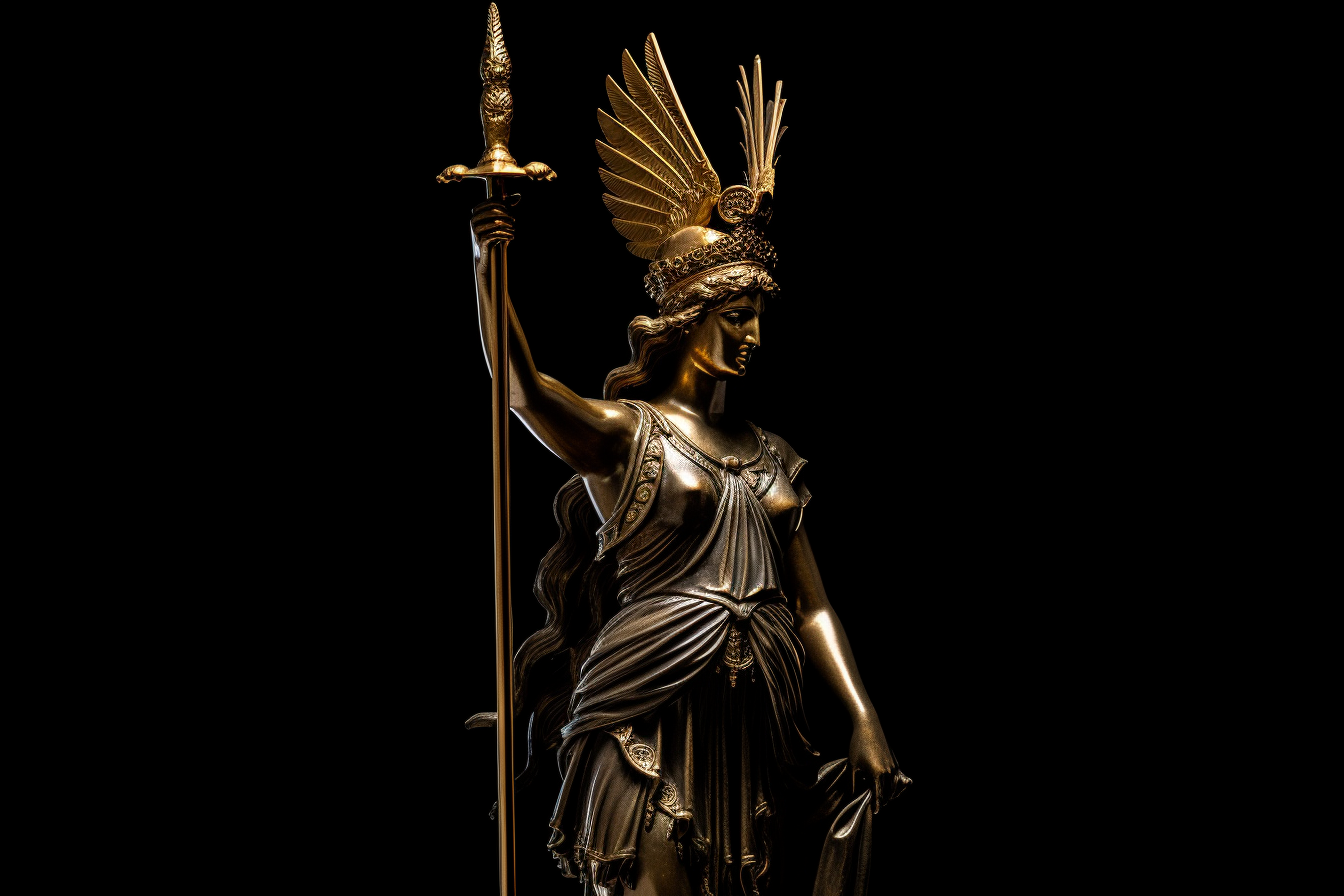Introduction: The Hymn of Proclus
In the quietude of my spiritual contemplation (see my post yesterday on the divine union https://angelswithblackwings.com/a-divine-union-the-dance-of-the-self-and-the-sacred/), I found myself drawn to the hymn of Proclus, a notable figure in the world of Neoplatonism. His unique approach to prayer, particularly evident in his hymn to Athena, offers a fascinating glimpse into the journey of the soul in Neoplatonism. This school of thought, which traces its roots back to the teachings of Plato and his successors, presents a rich tapestry of philosophical interpretation of Greek mythology and a unique perspective on the concept of divine unity. He asked in earnest plea from the goddess Athena for the following in Hymn 7: To Wise Athena (Translation by Barry Powell):
“Give me a happy habor as I wander over the earth!
Give to my soul a holy light from your sacred myths –
And give me wisdom and love! Breathe into my love
A strength so great and of such a nature that it draws
Me back from the earthly bosom into the realm of your
Father on Olympos. And if some grievous fault in my life
Overcomes me – for I know I am beset from every side
By unholy acts, thoughtlessly committed – well, be gracious!
You are a goddess with mild counsels, a savior of
Mortals.
Do not let me become prey and spoil for shivery
Punishments, face down on the ground, because I say
That I belong to you. Give a firm and painless health
To my limbs. Drive away the herds of bitter flesh-melting
Sickness, yes, I beg you, O Queen, and stop with your
Immortal hand every wretchedness of black pain. Give
Me calm winds as I journey through life, children, a wife,
Happiness, lovely joy, the power to persuade, conversation with friends, a clever spirit, strength against my enemies, prominence among the people.”
What else could a man wish for! The request encapsulates a myriad of human desires and spiritual aspirations. But to fully appreciate its depth, we need to understand the Neoplatonist worldview.
Interpretation: Neoplatonism and Greek Mythology
Greek mythology, steeped in a rich history spanning over a millennium, was ripe for philosophical interpretation by the time Plato emerged. He proposed that myths contained allegories about the nature of reality. Fast-forward five centuries, Neoplatonists, like Proclus, were meticulously reworking these mythologies to reveal meanings that resonated with their metaphysical theories.
Journey and Contemplation: The Soul and The Divine in Neoplatonism
To Neoplatonists, the material world is viewed as a deficient reflection of higher spiritual realities. The goal is the redemption of the soul, a return to unity with the divine mind or the One, from which it originated. The soul’s journey back to the divine is facilitated by philosophical contemplation of the Forms/Ideas, detachment from the senses, and the exercise of reason.
Therefore, for Proclus, the goddess Athena held deep symbolic importance. Athena represents the divine mind (nous) that emanates from the ultimate source (the One). She epitomizes wisdom, reason, and purity, shining a light on the path back to the One. Untouched by material corruption, her warrior abilities symbolize the soul’s struggle against earthly distractions.
Through this allegiance with Athena – “give to my soul a holy light from your sacred myths” – Proclus seeks internal spiritual gifts (love, wisdom, strength) and external blessings (mercy, health, companionship, success). Although very little is known of his adult personal life, except that he lived to the ripe age of 73, and he was the head of Platonic Academy in Athens until his death, it’s tempting to infer that his deep connection with Athena played a significant role in his life journey.
Here’s a quote from one of his late works, “Elements of Theology”, and I say these are words from a full heart:
“Every multitude in some way participates in the One. If, then, the One is predicated of each of the many in the way that ‘man’ is of each man, and if ‘man’ is in each case one and the same, then the One Itself will be the same in all things. But if the One is predicated of each in the way that ‘white’ is predicated of each white thing, then, just as in each case it is a different whiteness that is derived from white itself, so it will be a different one that is derived from the One Itself. If, however, the One is above all things, then we can neither say that it is the same in all, nor that it is different.”
This passage hints at Proclus’ contemplation of the One, the ultimate divine source. The One, in Neoplatonic philosophy, transcends all things and is the source of all unity and order in the universe. It is neither the same nor different in all things; it is beyond all dualities, a concept that can challenge our everyday understanding but is central to Neoplatonic thought.
A Personal Prayer to Athena
Inspired by his hymn, here’s my humble and sincere prayer also to Wise Athena:
To Wise Athena
“Hear me, from whose face shines forth a holy light!”
Show me the love from which wisdom is born
Keep my heart wise, its voice
Loud and clear
Descend on me so that I take each step back towards the light
Fuse my thinking and knowing,
So that
My thinking trusts my knowing, and
My knowing trusts my thinking
Guide me towards my destination
Along the way, I shall find
Safe harbor, laughter, and adventure
Guard my purity, so that I
See through duality
Never shrink from a battle, yet
Never let my peace be disturbed
Accept me into the light
From a spark to a flame
I shall join the grid
For I know
With you
I am always free, and
I am never alone
In the spirit of Neoplatonism, may we all find the light to guide our soul’s return to the divine.
